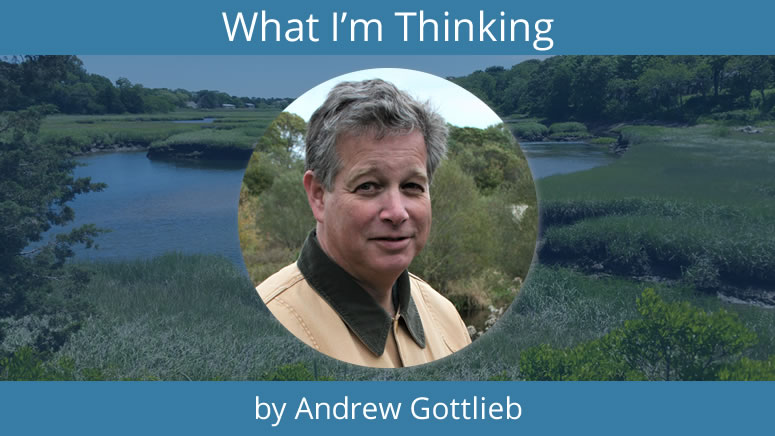An interesting piece in the New York Times (sorry, paywall) explored the feelings of scientists who have dedicated their careers to researching certain species (think polar bears and coral as examples) being decimated by the impact of climate change. Their reactions, from resignation and depression to ongoing optimism, resonated with me profoundly because the experience locally mirrors what the article described globally.
And it’s not just climate change that is impacting local resources of concern. Our choices to improperly treat our wastewater and fertilize our lawns have devastated our estuarine habitat. Ship strikes and line entanglement threaten North Atlantic right whales with extinction. Industrial scale fishing boats are wiping out the herring that support much of our marine food chain and are putting numerous species of fish, and fishermen, on the brink of collapse.
These local examples, and the loss of elemental aspects of what life on Cape Cod means, come at a high cost ecologically, economically, and emotionally. The closure of my favorite pond to swimming for a month this summer due to a protracted cyano bloom took something away from me that made this past summer a lot less than what I wanted it to be. Long gone are the days when scalloping and catching blue crabs were part of my regular enjoyment of Waquoit Bay. These are deeply personal losses to me, and while yours are likely different, we probably share the common feelings of loss over some environmental resource not being what it once was to us.
All that said, we here on Cape Cod remain well positioned to, as individuals, make choices that don’t just lessen our impacts on the environment, but instead can make things better. We can all choose not to use chemicals to treat our yards and plants. We can choose to make our voices heard in town hall and advocate for more open space protection and construction of modern wastewater treatment systems. We can choose to use our voting power to elect environmentally conscious people to office. We can choose to shut off the TV and attend town meetings and vote for the environment.
I totally understand the despair many of us feel about the condition of the world. Maybe we can’t save the polar bears by ourselves, but by acting locally we can save that nearby forest, that nearby estuary and that nearby pond. The knowledge that we have the power to effectuate changes should inspire us all to stay involved. Not bothering to try, or waiting for someone else to make the effort first, would be the real failure.


